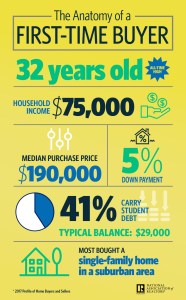Of the handful of new Maryland real estate related laws that go into effect this week, two are highly important for you to know. These are passed for the purpose of protecting home buyers and sellers. One protects your confidential information, and the other concerns your earnest money deposit on a Maryland home sale.
Protecting home buyers and sellers’ confidentiality is HB1228/SB807, which was effective October 1st. Besides cleaning up the definition of a brokerage relationship, the bill addresses client confidentiality. Unless a client consents in writing, Maryland licensed real estate brokers and agents may not disclose confidential information received from or about a client to any other party and/or their representative (including their real estate agent). The non-disclosure of confidential information protects past and present clients, and now is extended to potential clients as well.
Confidential information is defined as: a seller/landlord willing to accept less than the listing price; a buyer/tenant willing to pay more than their offer; motivation of a client; the need or urgency to buy, sell, or rent; any facts that led the client to sell, buy, or rent; and also relates to the client’s negotiating strategy. However, the duty to maintain confidentiality doesn’t apply to the disclosure of material facts about a property (which a home seller is also required to disclose).
Protecting home buyers deposits is effective October 1st. HB222 requires a written agreement between the buyer, seller and the escrow agent holding the earnest money deposit (EMD). The EMD is described as “consideration” for a seller to accept an offer. An escrow agent is the entity who accepts and holds the earnest money. The EMD is credited to the buyer at the time of settlement. However, if sale does not settle, the disbursement of the EMD can become contentious. Under certain circumstances, the contract of sale is clear about when the buyer may receive their EMD. However, real estate is not always black and white, and there are occasions when a dispute arises about whom is entitled to receive the EMD.
It used to be common practice for a real estate broker to accept and hold the EMD. Real estate brokers are bound by law as to how to handle and care for the EMD. However, brokers are increasingly reluctant in accepting EMDs for a number of reasons. Instead, brokers are directing their agents to have title companies to hold these deposits. But home buyers (and sometimes their agents) don’t realize that a title company is regulated differently than a real estate broker, and the EMD may not be handled as expected.
HB222 is important because it fills the gap for escrow agents who do not already have specific guidelines for handling EMDs. (HB222 doesn’t apply to Maryland real estate brokers and agents, and Maryland registered home builders selling new homes, as they are already regulated). The bill provides transparency so both the buyer and seller understand the terms for holding the EMD.
The bill requires an escrow agent to enter into a written agreement with the buyer and seller when the escrow agent agrees to hold an EMD for a Maryland home sale. The written agreement must contain the amount of the EMD; the date the EMD was given to the escrow agent; the responsibility of the escrow agent to notify the buyer and seller if the EMD funds are “dishonored” (e.g., bounced check); the conditions under which the escrow agent may release the EMD; and the process to address disputes over the release of the EMD.
Original article is published at https://dankrell.com/blog/2019/10/28/protecting-home-buyers/
By Dan Krell
Copyright© 2019
If you like this post, do not copy; instead please:
link to the article,
like it on facebook
or re-tweet.

Disclaimer. This article is not intended to provide nor should it be relied upon for legal and financial advice. Readers should not rely solely on the information contained herein, as it does not purport to be comprehensive or render specific advice. Readers should consult with an attorney regarding local real estate laws and customs as they vary by state and jurisdiction. Using this article without permission is a violation of copyright laws.






